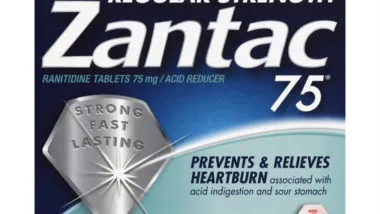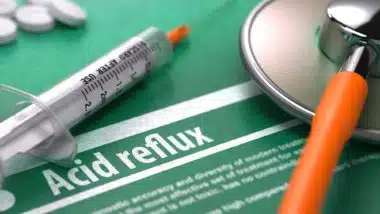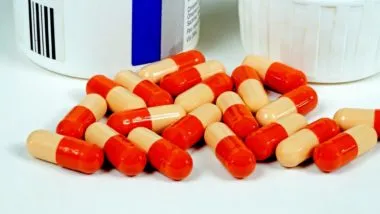 Proton pump inhibitors (PPIs) may be linked to stomach and kidney injuries, including chronic kidney disease and stomach cancer.
Proton pump inhibitors (PPIs) may be linked to stomach and kidney injuries, including chronic kidney disease and stomach cancer.
What Are Proton Pump Inhibitors?
Proton pump inhibitor (PPI) drugs are medications that prevent the production of acid in the stomach. These drugs may be used in the treatment of acid reflux, heartburn, and other conditions caused by an excess of stomach acid.
PPI drugs approved by the U.S. Food and Drug Administration (FDA) include:
- Prilosec (omeprazole)
- Prevacid (lansoprazole)
- Nexium (esomeprazole)
- Aciphex (rabeprazole)
- Protonix (pantoprazole)
- Zegerid (omeprazole and sodium bicarbonate)
- Dexilant (dexlansoprazole)
There are also over-the-counter versions of these medications that are more readily available but may be less potent. Between prescription PPI medications and over-the-counter drugs, PPIs are widely used.
How Do Proton Pump Inhibitors Work?
Drugs such as Nexium and Prilosec act by permanently shutting down the gastric proton pump. In scientific terms, this is known as the hydrogen/potassium adenosine triphosphatase enzyme system. This is found in cells lining the stomach, which are called parietal cells. These cells secrete hydrochloric acid, or the digestive juices, that break down food in the stomach. The proton pump is the final stage, or step in the secretion of stomach acid, and is, therefore, an optimal target for antacid medications. Because this shutdown is permanent, PPIs are among the most effective in reducing excess acid, lowering these levels by as much as 99 percent.
Are Proton Pump Inhibitors Dangerous?
Recent research suggests that PPI drugs may be linked to dangerous kidney and stomach side effects.
The stomach side effects of PPI drugs have been noted by scientists for years. PPI drugs are thought to increase the risk of stomach cancer, in addition to the presence of H. pylori. H. pylori is a bacteria found in the digestive tract which has been linked to the development of cancer.
However, studies have shown that PPI drugs may also play a role in stomach cancer in both H. pylori positive and negative individuals. These results prompted study authorities to suggest that doctors “exercise caution when prescribing long-term PPIs […] even after successful eradication of H. pylori.”
The kidney side effects of PPI drugs have also been the subject of scientific study. One study published in February 2019 found that patients who took PPI drugs were more likely to develop kidney disease when compared to patients who had taken other antacid drugs. This conclusion was reached through the analysis of FDA Adverse Effect Reporting System (FAERS) Database.
“Post-marketing data collected by the FDA and deposited in the FAERS database allows us to look for potential adverse effects beyond what was found in a clinical trial, which may not have lasted as long or included as much diversity as the FAERS does,” said senior author Ruben Abagyan.
Another large study from March 2019 showed that individuals who had taken PPI drugs had a 20 percent increased risk of developing kidney disease and were four times more likely to develop kidney failure.
Like other researchers, the researchers from the University at Buffalo School of Pharmacy and Pharmaceutical Studies recommended doctors be cautious when prescribing PPI drugs in light of the risks.
“This study adds to a growing list of concerning side effects and adverse outcomes associated with PPIs,” said co-author David Jacobs in a press release. “Given the increasing global use of PPIs, the relationship between PPIs and renal disease could pose a substantial disease and financial burden to the health care system and public health.”
Why Are These Drugs Harmful?
Used on an occasional, temporary basis (no more than three weeks), PPIs pose little in the way of health dangers. The serious side effects appear in patients who have been taking these medications for an extended period of time – often, with no real medical need.
Medical researchers believe that the harmful side effects are due to the fact that the effects of PPIs are irreversible – and that they do their job too well. The beneficial gut flora that exist in the digestive tracts of healthy individuals thrive in an acidic environment. They are also one of the body’s first lines of defense against illness and disease. When the production of stomach acid is reduced, gut-friendly microbes begin to die off – leaving the patient vulnerable to a range of disorders.
ATTORNEY ADVERTISING
Top Class Actions is a Proud Member of the American Bar Association
LEGAL INFORMATION IS NOT LEGAL ADVICE
Top Class Actions Legal Statement
©2008 – 2026 Top Class Actions® LLC
Various Trademarks held by their respective owners
This website is not intended for viewing or usage by European Union citizens.
E-mail any problems with this form to:
[email protected].
Oops! We could not locate your form.












